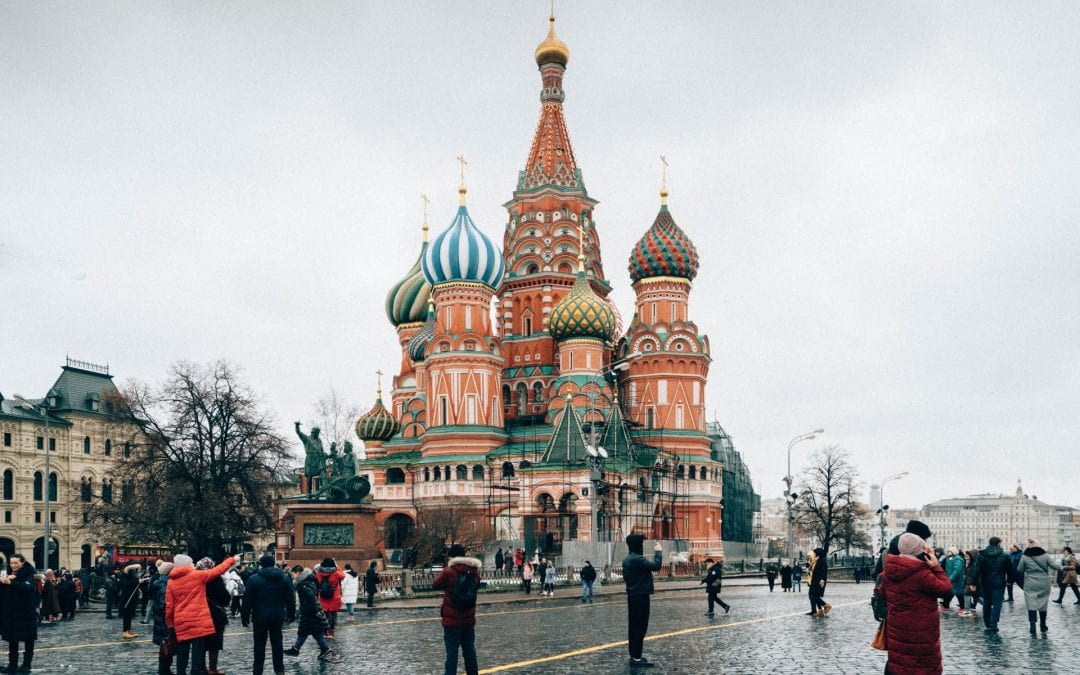Feature Photo by Random Institute on Unsplash
How has Russia changed, more than a year after its invasion of Ukraine? Has it become a fascist state with soldiers in the classroom, and people afraid to express the slightest doubts about the war? Are Russians consenting to be mobilised, to kill and be killed on the front? What do ordinary people really think about Ukrainians, the West and their own government?
At the beginning of last year, I spent time trying to answer the question of how war would change Russia – my hunch was “the same, but worse”. I continue to ask that question, both of myself and the dozens of Russians I work with.
I’m the only foreign anthropologist to have carried out fieldwork in Russia since the war began. I’m also (probably) the only researcher with long-term contacts from all walks of life, who can get reliable responses and avoid many of the biases those studying Russia are unavoidably subject to. Explaining the war means that many contradictory things need to be said. For many Russians, the conflict is traumatising yet normalised at the same time.
As I wrote in openDemocracy shortly after the invasion, when people are presented with potentially traumatising information, their cognitive coping mechanisms include denial and avoidance. As time goes by, they gravitate to more ‘sophisticated’ ways of dealing with the disturbing idea that their country is responsible for mass death and destruction, war crimes and worse.
They consolidate defensively around ideas that justify or explain the invasion, and allow them to continue their lives in as mundane a way as possible – that it’s the West who is the aggressor, or that Ukrainians are dupes of their own “fascist regime”.
These are not really ideas, but feelings that tap into deep-seated historical processes and unfinished questions about the nature of Russia and, before it, the Soviet state. These include misplaced and inaccurate perceptions of the Soviet order’s benign governance of Ukraine and elsewhere, as well as accusations of imperialist sins by the West while denying Russia’s same sins.
Geopolitical and historical resentment about the loss of the Soviet project are felt deeply by many Russians. Like all things that people believe about their own countries, these feelings are amplified in a crisis. But even this is not the main thing.
My job as an ethnographer is to observe and record, hopefully seeing through people’s guile and denial. This applies to perspectives in the West too, where we have just as many biases as those in Russia. As someone who has dedicated his professional life to the study of Russia and the broader context of life after the USSR, more than ever I ask this question: what are your claims to knowledge and what biases do they reveal?
I don’t pretend to analytical wholeness, but I do have confidence in my sources and (in the parlance of social science) their ‘reliability’ and ‘validity’. So much of what we see about the war from both the Ukrainian and Russian perspective is filtered heavily. Often what we see is secondary data that has been manipulated, whether consciously or unconsciously.
Four common misconceptions
Let’s take four broad categories of misconception (intentional in some cases).
Active misconception 1: Russians actively approve of the war and the regime’s conduct. A variation of this is that a majority (or large minority) of Russians are animated by nationalist fervour. Those, like me, who question this – whether we’re critical of survey data, or cautious about using samples of social media posts that express genocidal or other enthusiasm – generally get drowned out.
Reality: If you’d asked Russians before the war whether the Kyiv regime should be replaced in a military coup by Russian forces, those answering ‘yes’ would have been a tiny minority. The idea of a full-scale invasion was unthinkable. Ukraine, Crimea, the Donbas are not salient issues to most Russian people, even now. What matters are jobs, benefits, inflation, corruption, law and order, and other material concerns.
As I have written, survey polling in Russia is an imposition of the norms of the powerful upon the subordinate. It is true that people will readily repeat propaganda tropes about President Zelenskyi being a drug addict, about NATO mercenaries and depleted uranium. But only if you really prompt or push them.
Although people are looking over their shoulders when they speak about the war, they continue, online and off, to openly criticise the conflict, albeit with increasing risks. There are few “hurrah-shouting patriots” to be found. To most people, the regime’s national chauvinism is not an acceptable mobilising ideology.
The evidence for this is clear if researchers are honest about how anti-Ukrainian sentiment, patriotic symbols and ‘wartalk’ are not voluntarily present in everyday life. That’s not to say there isn’t an imperial residue, unpleasantly sticky and hard to wash off – but in this respect, are Russians very different to other post-imperial peoples? It’s unpopular to say so. But while there are some shared feelings between Putin and the Russian people, there is a gulf when it comes to the genuine revanchist and neocolonial intent of the regime.

A live broadcast on the Moscow metro of the Victory Day parade
|
Kirill Kudryavtsev / AFP via Getty Images
Active misconception 2: Mobilisation illustrates, at best, passive acceptance by Russians of the war. At worst, it indicates the complete atomisation of society, or the “learned helplessness” (being unable to find a resolution to a difficult situation) of men who really do have the option of resisting, but don’t take it.
Reality: Russia is a big place. For every hapless person mobilised, by consent or not, there are probably three or even four who have more or less actively avoided it. Just as underground groups do what they can to derail trains and graffiti public spaces with anti-war messages, ordinary people have all kinds of visible and invisible tools to dodge the state. (This will not change with the introduction of a digital conscription system – the database will be ineffective and may intensify institutional in-fighting between security services.)
For the vast majority, mobilisation is an occupational hazard that one can take small steps to reduce. Those who go willingly, or even volunteer, are pitied or looked on with disdain as uninformed dupes motivated by greed.
Russians are politically as diverse – and fickle – as anyone else. Anyone using terms like ‘electorate’ and ‘loyalty’ is guilty of gross oversimplification
Active misconception 3: Putin’s ‘electorate’ has benefited from the conflict – either because of the money paid to soldiers, or because of other economic changes to do with the war. Another variation is that sanctions have had no effect on Putin’s less-educated supporters.
Reality: Russians are politically as diverse – and fickle – as anyone else. Anyone using terms like ‘electorate’ and ‘loyalty’ is guilty of gross oversimplification.
It’s true that the regime itself thinks in terms of buying people off, and has thrown money at service personnel while trying to index pensions and benefits to the cost of living. However, the reality is that Russia remains a country where inflation exceeds salary rises, and incomes are comparable to struggling middle-income countries such as Colombia and Costa Rica.
Real incomes stagnated after 2010 and, for the majority, increasing costs eroded living standards while access to medical and educational services worsened. The housing market boom is not a sign of health, but a reflection of policymakers as hostages to fortune. There is a surfeit of ‘bad’ jobs (low pay, exploitation, unpredictable management), and most people know they risk losing their lives if they take the only other way out and join the army.
There is no good evidence that the much-quoted figure of 300,000 mobilised new personnel in 2022 was really achieved. Regardless, that number is just 1% of the able-bodied male population. Mobilisation represents Russia’s incoherent and incompetent state in action. ‘Too little, too late, too conditional, too technical, measures ever at counter purposes’ could be the summary of almost every social policy Putin has ever introduced.
Also, there’s no good evidence that Russia at war will stop being an “Empire of Austerity” – as economist Nick Birman-Trickett has called it. Actual services that people use and value are continually cut to the bone and worse. Monies recently allocated to ameliorate the self-inflicted wounds on Russian society sound big, but are not even sticking plasters.
The now-frequent refrains that Putin’s war is intended to reduce demographic decline, or that, conversely, it will precipitate imminent demographic collapse, are not supported by evidence. The argument that the deportation of Ukrainian children into Russia represents “biopolitical imperialism” has to be balanced by the regime’s utter lack of interest in the wellbeing of the vulnerable and their social reproduction in general.
The more unpleasant and potentially real the war becomes to the average Russian, the more they distance themselves cognitively
Active misconception 4: People in Russia pay attention to the daily minutiae of the war – such as the ongoing fight for Bakhmut, Prigozhin’s petulant antics, or Ukraine’s recent alleged drone strike on the Kremlin.
Reality: The more unpleasant and potentially real the war becomes to the average Russian, the more they distance themselves cognitively. People feel the unnerving reality of anti-aircraft missiles being installed in Moscow, but even then, they (perhaps rightly) conclude that this is both theatre and intended to protect their betters. It isn’t about them. This is the common refrain: “It’s nothing to do with me.”
Is this cynicism or close to the truth? Can ordinary Russians vote out Putin? Can they protest without risk of torture and 25 years in the worst possible jail conditions? Did they consent to this war? Does their ‘public’ opinion matter, in the unlikely event they are asked it?
Once again, while there are the creeping realities of war, normalisation of the abnormal continues – such as rising prices or the nationalisation of favourite foreign brands. The death of a neighbour’s son at the front or the car-bombing of an ultra-nationalist figure most people have never heard of – these are uncomfortable things, but they can quickly be put out of sight and mind.
Do Russia’s scaled-back celebrations on Victory Day (commemorating the Soviet defeat of Nazi Germany) indicate it is no longer possible to ignore the possibility of the war ‘coming home’?
Not really. People will continue to keep their worries, their cares and their remembrances private. People will actively connect and resist, but they will be a minority – just like the minority responding to the call of the motherland to fight and die for an unhinged clique’s vision of Russia resurgent.
Story republished from Open Democracy under the Creative Commons License.

